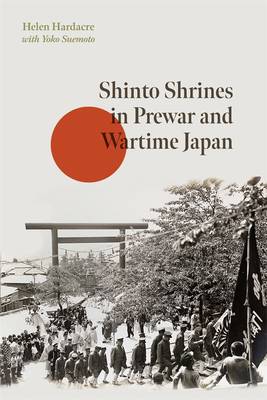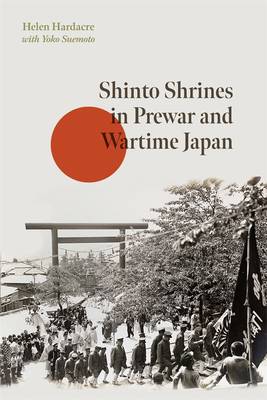
- Afhalen na 1 uur in een winkel met voorraad
- Gratis thuislevering in België vanaf € 30
- Ruim aanbod met 7 miljoen producten
- Afhalen na 1 uur in een winkel met voorraad
- Gratis thuislevering in België vanaf € 30
- Ruim aanbod met 7 miljoen producten
Zoeken
Omschrijving
Shinto Shrines in Prewar and Wartime Japan examines the religious and social history of Shinto shrines, focusing on the economic, social, and ideological implications of State Shinto. Helen Hardacre argues that politicians regarded public funding of shrines as crucial for elevating their "dignity" and for curbing progressive thought and activism. Understanding the social and financial dynamics of both major and smaller shrines is key to comprehending State Shinto's broader impact on Japanese society. This study employs a historical analysis using shrine records, personal diaries, contemporary literature, and government documents. It includes case studies contextualizing events at specific shrines within broader social and political change, personal accounts of priests and laypeople, and statistical analysis of funding patterns. Hardacre's comprehensive approach provides valuable insights into the role of religious institutions in politics and ideology. By highlighting the nuanced experiences of smaller shrines, their priests, and associated laypeople, Shinto Shrines in Prewar and Wartime Japan enhances understanding of State Shinto's reach and influence, contributing to broader discussions on the interplay between religion, politics, and society in modern Japanese history.
Specificaties
Betrokkenen
- Auteur(s):
- Uitgeverij:
Inhoud
- Aantal bladzijden:
- 426
- Taal:
- Engels
- Reeks:
Eigenschappen
- Productcode (EAN):
- 9780674302594
- Verschijningsdatum:
- 21/10/2025
- Uitvoering:
- Hardcover
- Formaat:
- Genaaid
- Afmetingen:
- 163 mm x 216 mm
- Gewicht:
- 771 g

Alleen bij Standaard Boekhandel
+ 207 punten op je klantenkaart van Standaard Boekhandel
Beoordelingen
We publiceren alleen reviews die voldoen aan de voorwaarden voor reviews. Bekijk onze voorwaarden voor reviews.








